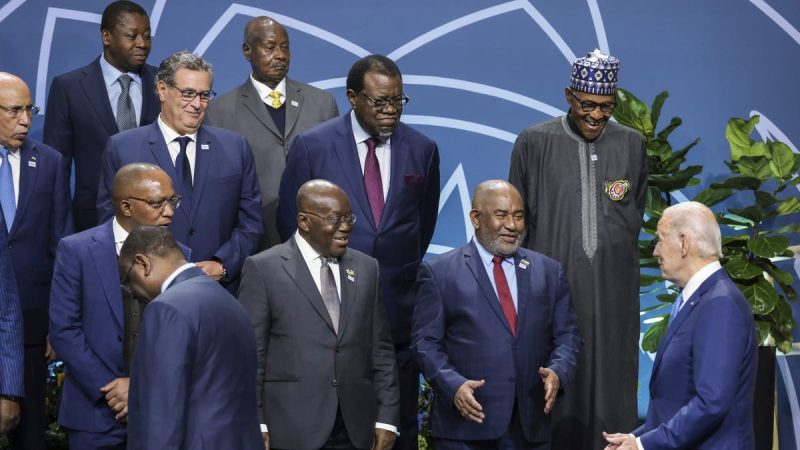As a leader of one of the world’s most powerful countries, President Joe Biden’s recent trip to Africa comes at a crucial time when the continent is experiencing significant geopolitical and economic shifts. The visit underscores the importance of engaging with African nations, not only for their rich resources but also for the potential diplomatic alliances and economic partnerships that can benefit the U.S. and the African continent as a whole.
The Biden administration’s policies towards Africa have been criticized for being over-promised and under-delivered, particularly in the context of China’s increasing influence on the continent. China’s aggressive expansion and investments in Africa have raised concerns among Western powers, including the United States. Biden’s visit to Africa could be seen as an attempt to counterbalance China’s growing presence and reaffirm America’s commitment to the region.
During his visit, President Biden is expected to discuss a range of issues, including trade, security, and governance. These discussions are crucial, as Africa continues to face significant challenges, such as political instability, economic inequality, and security threats. The U.S. has a vested interest in working with African nations to address these challenges, not only for the stability and prosperity of the continent but also for its own strategic interests.
One of the key areas of focus for the Biden administration in Africa is promoting democracy and good governance. The U.S. has long emphasized the importance of democratic values and institutions in fostering stability and development. However, critics argue that the U.S. has not always lived up to its commitments in supporting democratic transitions in Africa, leading to skepticism among African leaders and citizens.
In addition to governance issues, trade and economic development will also be high on the agenda during President Biden’s visit. Africa is home to some of the fastest-growing economies in the world, offering significant opportunities for trade and investment. The U.S. has a chance to strengthen its economic ties with African nations, creating mutual benefits and opportunities for growth.
Security cooperation is another crucial aspect of U.S.-Africa relations, as the continent continues to face security challenges ranging from terrorism to organized crime. The U.S. has provided military assistance and training to several African countries to combat these threats. President Biden’s visit offers an opportunity to review and strengthen security partnerships, ensuring that both the U.S. and African nations are better equipped to address security challenges effectively.
Overall, President Biden’s trip to Africa signifies the importance of U.S. engagement with the continent and the potential for constructive partnerships between the two. By addressing the criticisms of over-promised policies and under-delivered results, the Biden administration can work towards a more effective and mutually beneficial relationship with Africa. The visit also highlights the growing competition for influence in Africa, particularly with China’s expanding presence, underscoring the importance of strategic diplomacy and cooperation in the region.

